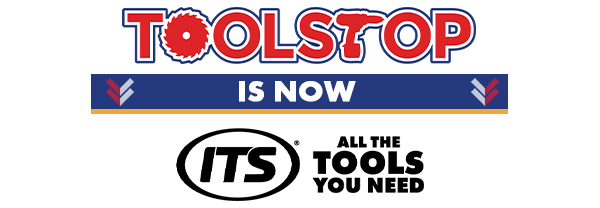Compactors
Compactors are indispensable tools for construction and landscaping, ensuring stable and level surfaces. With easy maneuverability and reliable power, these machines compact soil, gravel, and more, creating a solid foundation for long-lasting results.
Who Uses Compactors?
Compactors are widely used across various industries for construction, landscaping, and groundwork preparation. Their ability to efficiently compact surfaces makes them invaluable for professionals and DIY enthusiasts.
- Construction Workers – Used to compact soil and gravel for building foundations, roadwork, and paving projects.
- Landscapers – Ideal for creating level surfaces for patios, driveways, and garden paths.
- DIY Homeowners – Perfect for smaller home improvement projects like preparing a base for sheds or compacting soil for gardening tasks.
Compactors Are Great for Jobs Such As:
- Preparing foundations – Compact soil to create a stable base for construction or extensions.
- Laying driveways – Ensure a durable, compacted surface for gravel or asphalt applications.
- Installing patios – Achieve level ground for placing pavers and preventing future sinking.
- Landscaping projects – Compact soil for retaining walls, flowerbeds, and pathways.
- Backyard renovations – Prepare surfaces for sheds, greenhouses, or outdoor seating areas.
How to Choose the Best Compactor
Selecting the right compactor ensures optimal performance for your construction or landscaping project. From power options to size and plate type, consider these key specifications to find a compactor tailored to your needs.
1. Power Source Options
Petrol Compactors: Ideal for heavy-duty jobs and outdoor use, petrol compactors deliver consistent power for demanding tasks but require regular fuel and maintenance.
Electric Compactors: Perfect for smaller spaces or light-duty tasks, these are quieter and eco-friendly but may be limited by cord length or battery life.
2. Plate Size and Type
Small Plates: Great for tight spaces and detailed work such as garden paths and patios. These offer better maneuverability but may take longer for large areas.
Large Plates: Designed for faster coverage of expansive areas like driveways or foundations. While efficient, these require more space for operation.
3. Vibration Control Features
Look for compactors with built-in vibration control to reduce hand-arm vibration syndrome (HAVS). These features enhance operator comfort and safety, especially for prolonged use.
4. Travel Speed and Efficiency
Faster travel speeds improve efficiency on larger jobs but may compromise control on smaller or uneven surfaces. Choose a model with adjustable speed settings for versatile use.
5. Weight and Portability
Heavier compactors offer better compaction for tougher jobs but can be difficult to transport. Lightweight options are easier to move but may require multiple passes for the same result.
6. Maintenance Requirements
Choose a compactor with accessible components for easy cleaning and maintenance. Models with durable materials and fewer moving parts typically require less upkeep, saving time and costs.
7. Noise Levels
If working in noise-sensitive areas, consider models with noise-reduction technology. Electric compactors are generally quieter, making them suitable for residential or urban projects.
Essential Accessories for Compacting Machines
Pairing your compactor with the right accessories can improve its functionality and make your work more efficient. From ensuring better performance to enhancing safety, these accessories are must-haves for any compactor user.
1. Compaction Mats
Compaction mats help protect delicate surfaces like pavers or decorative concrete from damage during use. They distribute the compactor's force evenly, ensuring efficient compaction without scratching or cracking the surface.
2. Dust Suppression Systems
A dust suppression system minimizes dust during compaction, making the process cleaner and safer for the user and the surrounding environment. This is especially useful in dry or urban areas where dust can be a concern.
3. Maintenance Kits
Maintenance kits, including replacement filters, belts, and oil, ensure your compactor stays in top condition. Regular upkeep with the right tools extends the lifespan of the machine and maintains its performance.
Frequently Asked Questions
What types of compactors are available?
There are two main types of compactors: plate compactors and rammer compactors. Plate compactors are ideal for flat surfaces like patios and driveways, while rammer compactors are better suited for deeper compaction in confined areas such as trenches.
How do I choose the right size compactor?
The right size depends on the job's scale and surface area. For smaller tasks like garden paths, a lightweight plate compactor is sufficient. Larger jobs, such as driveway construction, may require a heavier-duty model with more compaction force.
What safety measures should I follow when using a compactor?
Always wear safety gear, including gloves, ear protection, and sturdy footwear. Ensure the area is clear of debris and follow the manufacturer's guidelines for operation. Be cautious when compacting on slopes to avoid tipping.
Can compactors be used on different types of soil?
Yes, compactors can be used on various soil types, but performance varies. Granular soils like sand and gravel compact more easily, while cohesive soils like clay may require more passes or a higher compaction force.
How do I maintain my compactor?
Regular maintenance includes checking the oil level, inspecting belts, and cleaning the machine after use to prevent build-up. Always follow the manufacturer's recommended maintenance schedule for optimal performance and longevity.


